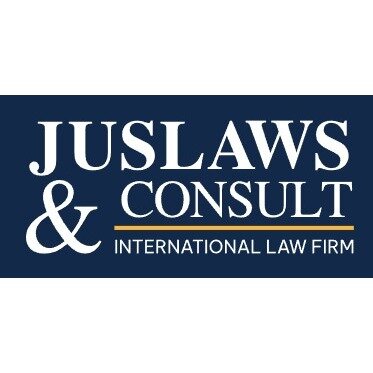Best Consumer Protection Lawyers in Thailand
Share your needs with us, get contacted by law firms.
Free. Takes 2 min.
Or refine your search by selecting a city:
List of the best lawyers in Thailand
Legal guides written by Smart Legal Solutions:
- Main Legal Measures to Protect Foreign Investment in Thailand
- The importance of the geographical indications for the Thai economy
Legal guides written by Mahanakorn Partners Group Co., Ltd:
- Thailand Strengthens Anti-Money Laundering Laws with New Amendments
- Recent Updates to Thailand’s Long-Term Resident (LTR) Visa and SMART Visa Programs
- Managing Risks in Public-Private Partnership Projects
Thailand Consumer Protection Legal Questions answered by Lawyers
Browse our 1 legal question about Consumer Protection in Thailand and read the lawyer answers, or ask your own questions for free.
- A boat builder has not completed the construction of my boat in a reasonable amount of time but has taken 90 percent of the payment. What legal action can I take against him?
- I purchased a new 65' Power Catamaran from a boat builder which was to be completed in 10 months 2.5 years ago here in Rayong. They started construction on March 1st, 2021 and they are still not finished. Payment was agreed to in 8 installments of 175,000US for a total... Read more →
-
Lawyer answer by Max Law Firm International
Max Law Firm International. We are a full service law firm based in Bangkok, Thailand serving with all legal services to locals and expats since 2010. Our team of experienced lawyers are readily available to help you. We response the...
Read full answer
Thailand Consumer Protection Legal Articles
Browse our 1 legal article about Consumer Protection in Thailand written by expert lawyers.
- How to File a Consumer Complaint in Thailand
- Strong consumer protection regulations in Thailand seek to guarantee fair company operations and protect consumer rights. Whether you are a regular consumer seeking redress for problems, a lawyer helping clients, or a company professional managing conflicts, knowing how to properly submit a consumer complaint can be vital. This article covers... Read more →
About Consumer Protection Law in Thailand
Consumer Protection Law in Thailand is designed to safeguard the interests of consumers in their transactions with businesses. It ensures transparency, fairness, and accountability in the marketplace. The primary legislation concerning consumer protection is the Consumer Protection Act B.E. 2522 (1979), which establishes the rights of consumers and the obligations of businesses. This law is enforced by the Consumer Protection Board (CPB), part of the Office of the Prime Minister, which investigates complaints and ensures compliance.
Why You May Need a Lawyer
Engaging a lawyer in consumer protection matters can significantly benefit individuals who encounter complex situations, such as:
- Dealing with deceptive or unfair trade practices.
- Resolving disputes over product quality or false advertising.
- Negotiating settlements for breach of consumer rights.
- Understanding and navigating legal procedures for filing a complaint.
- Defending against unjust claims by businesses.
A lawyer can provide expert legal advice, represent consumers in legal proceedings, and facilitate the enforcement of judgments or settlements.
Local Laws Overview
The Consumer Protection Act is the cornerstone of consumer rights in Thailand, covering several key aspects:
- Advertising Control: Ensures that advertisements are truthful and not misleading.
- Consumer Complaints: Offers a formal process for consumers to file complaints regarding unfair practices.
- Contract Clarity: Mandates that contract terms be clear and understandable.
- Product Safety: Ensures that all goods sold meet minimum safety requirements.
- Labeling Requirements: Requires accurate labeling of products, including ingredients and potential hazards.
Frequently Asked Questions
What is the Consumer Protection Board (CPB)?
The CPB is a governmental body responsible for enforcing consumer protection laws, handling consumer complaints, and ensuring fair trade practices.
How can I file a consumer complaint?
Complaints can be submitted to the CPB in person, by mail, or via their official website by providing detailed information about the issue and relevant supporting documents.
What types of issues can I report to the CPB?
Any consumer-related issue involving deceptive practices, unfair trading terms, defective products, or false advertising can be reported.
Are there any fees for filing a consumer complaint?
No, filing a complaint with the CPB is free of charge.
How long does it typically take to resolve a consumer complaint?
The resolution time can vary based on the complexity of the case, ranging from a few weeks to several months.
Can I seek compensation for damages in a consumer protection case?
Yes, consumers can seek compensation for damages incurred due to unfair trading practices or defective products.
What are the penalties for businesses violating consumer protection laws?
Penalties can range from fines to revocation of business licenses, depending on the severity of the violation.
Is there a statute of limitations for consumer complaints in Thailand?
Yes, typically consumers must file complaints within two to five years from the date of the incident, depending on the nature of the issue.
Can foreign consumers file complaints with the CPB?
Yes, foreign consumers can file complaints if the transaction occurred in Thailand or involves a Thai business.
Are there any alternative dispute resolution mechanisms available?
Yes, mediation and arbitration are available to resolve disputes without resorting to litigation.
Additional Resources
For further assistance, consider reaching out to the following resources:
- Consumer Protection Board (CPB): The primary government body managing consumer rights.
- Thai Consumer Protection Association: A non-profit organization dedicated to protecting consumer interests.
- Office of the Ombudsman Thailand: Addresses breaches of administrative law affecting consumers.
Next Steps
If you require legal assistance in consumer protection, consider the following steps:
- Document the issue thoroughly, including dates, communications, and receipts.
- Contact the business directly to attempt resolution.
- If unresolved, file a formal complaint with the CPB.
- Consult with a qualified consumer protection lawyer for legal advice and potential representation.
- Explore alternative dispute resolution options if necessary.
Engaging with these steps can help you effectively address consumer protection issues and safeguard your rights.
Lawzana helps you find the best lawyers and law firms in Thailand through a curated and pre-screened list of qualified legal professionals. Our platform offers rankings and detailed profiles of attorneys and law firms, allowing you to compare based on practice areas, including Consumer Protection, experience, and client feedback.
Each profile includes a description of the firm's areas of practice, client reviews, team members and partners, year of establishment, spoken languages, office locations, contact information, social media presence, and any published articles or resources. Most firms on our platform speak English and are experienced in both local and international legal matters.
Get a quote from top-rated law firms in Thailand — quickly, securely, and without unnecessary hassle.
Disclaimer:
The information provided on this page is for general informational purposes only and does not constitute legal advice. While we strive to ensure the accuracy and relevance of the content, legal information may change over time, and interpretations of the law can vary. You should always consult with a qualified legal professional for advice specific to your situation.
We disclaim all liability for actions taken or not taken based on the content of this page. If you believe any information is incorrect or outdated, please contact us, and we will review and update it where appropriate.
Browse consumer protection law firms by city in Thailand
Refine your search by selecting a city.

















